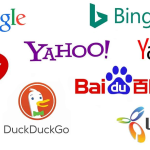
Most fountains in populated areas have dozens of coins in the fountain basin. People are drawn to fountains, throw in coins, and wish for positive outcomes. While it’s a fun practice, the average person doesn’t expect a return from that coin they toss.
Marketers, however, should be much more strategic than throwing a coin into a fountain. If you start tossing money into strategies without a budget, you may run out of resources before you see your goals fulfilled.
A budget also helps you designate which areas should receive the most resources. Some places, like paid search, require more investments than others.
While your budget for content marketing will be unique to your business, we understand it can be challenging to start crafting a content marketing budget from scratch. That’s why we pulled together some average industry numbers to help you create your content marketing budget.
Is Content Marketing Worth the Investment?
Why?
That’s the question you should be asking right at the start of any budget planning. Why should you invest in content marketing?
If content marketing doesn’t generate a profit greater than your initial investment, it’s not worth the investment.
From our years of experience, we know that well-planned content marketing strategies far exceed a business’s expectations for return. Marketers who include content like blogs in their marketing see 13 times more return on investment than those without blogs.
Your return won’t just come in the form of sales. About 70% of people prefer content to learn about companies rather than relying on ads.
Content marketing builds trust, generates new leads, nurtures those leads, and moves them toward sales. It should be part of all marketing strategies, from the smallest to the largest companies.
How Are Content Marketing Budgets Changing?
About 45% of content marketers plan on increasing in their marketing budget moving through this year. This is a result of inflation and rising content costs. However, it also has to do with increasing customer needs.
Readers want to read longer articles, and Google is prioritizing higher-quality content. Both these factors require hiring quality subject matter experts who can provide just what your audience is looking for.
Content with media also receives more attention than plain text. Adding in branded photos and videos can further increase your content creation costs.
While costs are increasing, so is interest in content. Increasing your budget will also increase your sales if you work with content creators who understand you and your audience.
How Much Does Content Marketing Cost?
Plan to spend between $5,000 and $10,000 monthly on a strong content marketing strategy. The exact amount will vary, but you should plan to invest 25-30% of your total marketing budget on content.
This content marketing cost can be more or significantly less depending on what you include in your content budget and the size of your company.

Image from Search Engine Land
Here are some of the factors that will influence your budget:
Content Strategy
Cost: $200+, Express Writers Cost: $300-$400
Before writing content, hire a strategist to plan the most effective channels and formats. A content strategist will help you research profitable topics and build a content calendar. The more you invest in your content strategist, the more guidance you will receive to help you make the most profitable content marketing decisions.
Writer
Cost: $100+, Express Writers Cost: $57+
The average writer charges between $0.05 and $0.20 per word. However, once you start talking with subject matter experts with more experience, you’ll see rates of $0.30+ per word.
Your writer will turn your content calendar and keywords into quality content. Hiring quality writers with industry-specific experience will distinguish you online from generic AI content. Experienced writers will also cost more than hiring writers from content mills.
The cost of writers will depend on your posting frequency. Most businesses post weekly or several times a week—only 19% post more than once a week.
Editor
Cost: $12 per 1000 words. Express Writers: Included
While your writer will put forth their best effort to produce publish-ready content, they are human, and you will need an editor to double-check that the content is accurate. An editor helps ensure your content matches the platform and any instructions.
At Express Writers, we have quality assurance editors who look over all content. Their services are included in the project cost.
Designer
Cost: $50+, Express Writers: Included with some packages
Graphic design and blog post layout both require a designer to ensure your content looks appealing and will attract readers. The graphic design cost will depend on the complexity of the graphics and your designer’s experience.
While Express Writers focuses primarily on written content, we have designers who create basic images, quotes, and infographics that will help your blog posts pop without breaking the budget. Blog design is included in several packages, like our Authority Content.
Data Analytics
Cost: $20-$50/hr. Express Writers: $300+ Fixed
After publishing content, you will want someone to monitor your content’s performance so you understand how well you are reaching your audience.
You will most likely have an in-house data analyst to monitor your content. However, if you are looking for a deeper overview, hiring Express Writers’ content strategist to look at your growth and suggest adjustments might be worth the investment to keep you on track.
Advertising
Cost: $200+
While organic search is much more cost-efficient and yields long-term results, you may want to sponsor content to temporarily boost traffic and awareness.
Advertising will add up quickly, depending on the platform. The average cost per click can range from a couple of cents to a couple of dollars. Social media advertising, on average, ranges from $850 to $2750 monthly.
Content Marketing Equipment
Cost: Varies
Content marketing doesn’t require high tech, but you may need to invest in a few supporting tools. To perform all your content marketing in-house, you must budget for research tools like SEMrush and content management tools for creating and posting content.
If you outsource your content, you can save on many of those monthly subscriptions as you can benefit from the agency’s tools that come included with your fee.
5 Steps for Setting Up Your Content Marketing Budget
Follow these steps to decide how much you can spend on content marketing for the highest return.
Step 1: Set Your Available Budget
Before deciding what you want to spend, ask yourself what’s available. Look at your overall company costs and compare them with your profits to determine what you can move to marketing.
You may spend 2-10% of your company budget on marketing. However, your industry plays a significant role. For example, consumer packaged goods have a 25% marketing budget, and communications uses 14% of your total revenue budget.
The more marketing channels you use and the broader your audience, the higher the marketing costs will be.
Content marketing will then be about a third of that budget.
Step 2: Research Your Average Industry Spending
What are others in your industry spending on content marketing? While average marketing spending can give general guidelines to follow, you saw above just how drastically budgets can vary. Industries like transportation require very little marketing as transportation is necessary, and there isn’t too much competition.
However, consumer goods is a very competitive industry, and consumers may not be inclined to purchase products without friendly encouragement and nurturing from your content marketing efforts, resulting in a much higher budget.
As you look at the amounts your competition is spending, note where they are posting. For instance, keep track of what social media channels they use and where they use paid advertising, as you will want to ensure you also have a presence on those channels.
Step 3: List Your Content Marketing Priorities
You can create a list of your content marketing priorities using the data you collected about where your audience spends most of their time and where your competition is.
Some of the most popular content marketing formats and channels include:
- Blogging
- Email marketing
- Social media
- Videos
- Downloads (eBooks, case studies, whitepapers)
- Infographics
After writing down the channels you would like to invest in, sort them by their priority, with those promising the highest return near the top, where they’ll receive the bulk of your budget.
Step 4: Divide Your Budget
While you already have your content marketing budget designated, you’ll want to divide this further. This ensures that all your spending doesn’t flow to the same place but is diversified.
You will use your list of priorities to help divide up your spending by profitability and effectiveness. Remember that paid advertising will be more expensive than regular content creation and would need a much higher budget.
Step 5: Track and Adjust Your Budget
Your budget is an agile guideline that changes with your needs and trends. If you see new opportunities to reach your audience, you may need to shift your budget to create fresh content or advertise on the new platform.
On the other hand, if you’re noticing very little response on some of your channels, such as your social media, you may want to cut back on your content investment.
A content strategist can help you analyze your content health and find new ways to invest your budget.
How to Save on Your Content Marketing Budget
Content marketing can quickly add up. We have other options if you’re looking at those numbers and wondering how you will keep up with others in your industry.
Here are our top money-saving tips for stretching your budget further.
Repurpose and Reuse Content
We can’t stress this option enough!
Far too many content marketers stretch themselves thin, creating content for a half dozen channels from social media to emails and blogs.
If you have quality content, there is no need to keep creating new content.
Repurposing content uses the same ideas, images, and videos across several channels. The post you shared on Facebook can also appear on LinkedIn.
If you can’t share content directly, you can still pull ideas and topics to keep your story consistent across channels.
Create Focused Content Strategies
Focus on only the most profitable channels. Just because Facebook is one of the most popular channels doesn’t mean you have to post content on Facebook. Quite a few companies have not seen much return from specific social channels or advertising and have chosen not to post on those channels.
If a channel isn’t turning a profit, cut it from the list and use that budget elsewhere.
Build an Evergreen Strategy
Blogging is an area where costs can quickly increase, especially if you post several times a week.
The amount of blogs you post depends on your industry. It also depends on the topics you discuss. Some topics will run their course and become obsolete, such as blog posts about breaking news or algorithm changes that will become irrelevant when the next big thing hits the news.
If you only post breaking news, you will need regular blog posts to attract that traffic. However, if you spend most of your budget on evergreen topics, you can get away with paying less.
An evergreen topic remains relevant much longer, often for years. Because it remains relevant longer, it will continue attracting more traffic over time. So, you can post less content and still generate the same or more traffic.
Invest Your Content Marketing Budget Wisely
If you want to stretch your content marketing budget further, outsource some or all of your content marketing tasks. Outsourcing allows you to access top talent and tools without high hiring costs. You can scale your content needs as they change, ensuring you only pay for what you need.
Contact us for a custom quote for your content needs.

The post What Should Your Content Marketing Budget Be? appeared first on Express Writers.













